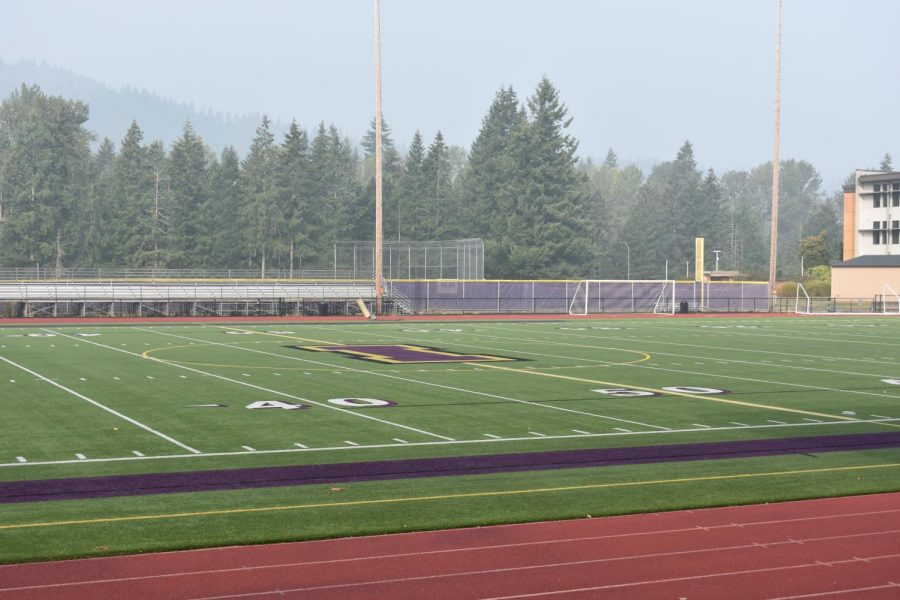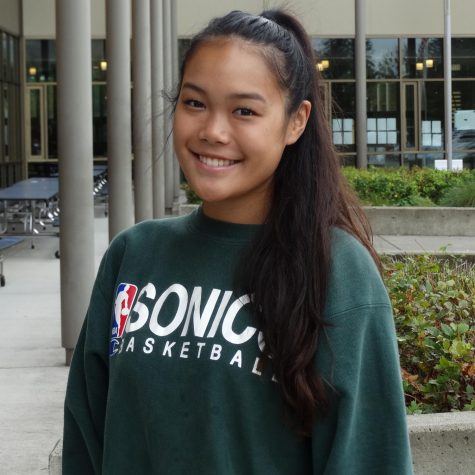The Detrimental Effects of Cancelling School Sports
October 15, 2020
Friday nights during the fall usually mean packed stands full of loud, cheering students at the Gary Moore Stadium, but not this year. Just like a lot of things, school sports have changed because of restrictive measures against the spread of COVID-19 in Washington state. In today’s world, it is normal for daily activities to be cancelled. With all that is going on, students hypothetically are more prepared and not as affected by the cancellation of another thing that is normally a part of our daily lives, but it is quite the opposite. The removal of regular sports practices from students’ lives have impacted their mental, social, and physical health.
Since the beginning of the COVID-19 pandemic, school sports have been put on hold. The absence of school sports is taking a dramatic toll on students’ mental health. According to a study conducted by UW Health, “Approximately 68 percent of the 3,243 student-athletes surveyed reported feelings of anxiety and depression at levels that would typically require medical intervention – that’s up 37 percent from past research studies.” More and more teens are fighting feelings of depression and anxiety. Cancelling school sports is adding to all the stress in student athletes’ lives. Sophomore Ellie Roberts describes how she is feeling a “rollercoaster of emotions. Most athletes love their sport because it gives us a mental break and I feel like I’m missing that.”
A lot of student athletes at Issaquah High are feeling the impacts of the absence of school sports mentally because it’s harder to give yourself a mental break when school takes up a lot of your time at home. Senior Josh Geisser said, “After being on a screen all day, it is hard to get up and move around but it makes me feel better and more focused after. I really have to motivate myself to put physical activity in my schedule so I will do better because I can really tell that I’m mentally drained when I don’t have enough physical activity during the day.” Most students observed that their mental health is impacted more when they do not motivate themselves to have a regular schedule of training for their sport, but when athletes are being affected by sadness and disappointment, they find it harder to motivate themselves to train. Roberts said, “I’ve still been able to run by myself, which has been hard. I had to come back from an injury during the closure so that was hard and staying motivated was very difficult during the spring and especially the summer. Now that school has started, I’m trying to get a hang on the new school schedule before I really try to get back into it, but I am missing the physical break every day that I normally get right after school.” Training on top of not really knowing if school sport will even happen can be very difficult because having that physical activity really helps mental health. But, it is hard to motivate without a clear goal to reach. Encouraging athletes to focus on things that athletes can control can help student athletes focus on the right things to help them overcome negative dialogues caused by the absence of regular school sports practices.
This year, the social aspect of everyone’s lives has suffered immensely because of the pandemic that is gripping the world. Teens have gone six months without having their normal daily routine and seeing all of their friends often. According to Jake Adams, a writer for The Sentinel, “The social aspect of being around peers and friends is important. Humans are social creatures by nature and living apart from their normal social circle for long periods of time can be troubling.” Since athletes are not able to be around their team, putting exercise into their schedule is more difficult because they are not being motivated by their teammates. The lack of social interaction with their team is causing negative effects on athletes’ social health and is impacting how they are mentally and physically.
The school district is planning to bring back sports in the new year and early spring. Student athletes are hopeful that things will work out and they will be able to compete this year. Freshman Ela Wojewoda said, “I’m really hoping that we are going to be able to have it and be with everyone, but making friends on the team will be harder and the guidelines will make things a little weird at practice, but I’m excited with the possibility to be able to have a season.” The guidelines that sports will have to follow will affect each sport differently, but students are confident that coaches will be able to figure out a way to practice and train while following guidelines that are given to them. Junior Josh Delgadillo stated, “I’m confident that our school will be able to be safe when we go back. I think it’s good that we are still waiting for the cases to go down before school sports happen because not being able to complete makes the season not even worth it for school sports. But I do think noncontact sports will have an easier time coming back. I can see sports like cross country and track having a pretty normal season in the spring but I’m unsure about how contact sports will go.” Student athletes are concerned that contact sports are going to be riskier than others. Delgadillo worries that the school district will determine that contact sports are still unsafe in the spring and they will cancel non-contact sports as well just to be fair.
The COVID-19 outbreak has upended everyone’s routine. Everything is still so uncertain for schools. People question if we are even going back. Student athletes are being mentally and physically impacted by the absence of school sports in our lives right now. Most have lost the opportunity to do something that defines them. They are asking themselves if it is worth training for a season that might not even happen in the spring like we are planning.



